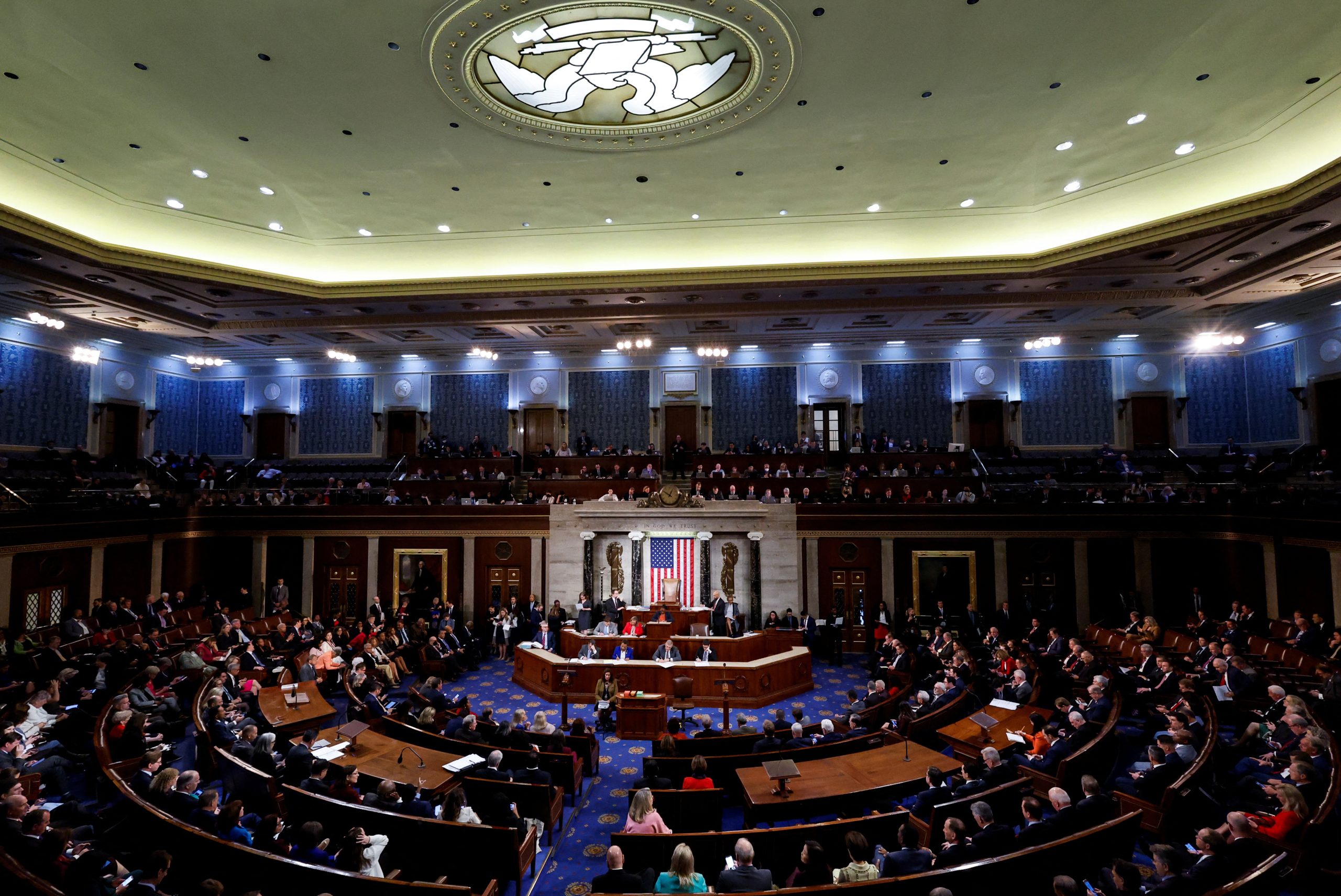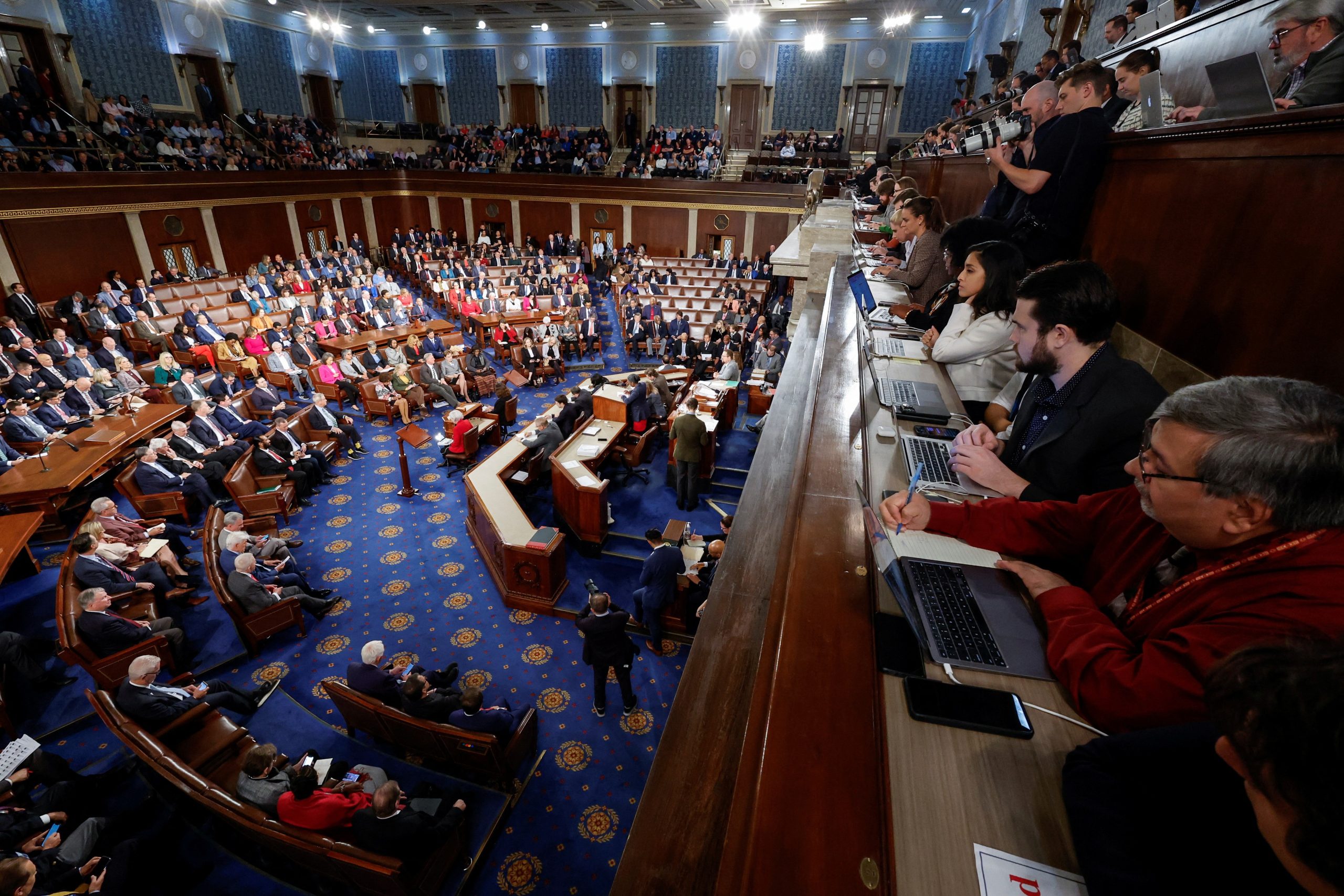Thursday marked a significant development in Belgium’s energy landscape as the Chamber of Representatives plenary session greenlit an expedited process for the bill aiming to prolong the operational lifespan of the Doel 4 and Tihange 3 nuclear reactors.
Spearheaded by Energy Minister Tinne Van der Straeten, the proposal outlines a plan for the continued operation of these nuclear power plants until December 31, 2037.
The journey of this bill to the plenary session wasn’t without its hurdles. Delays ensued, primarily attributed to internal disagreements within the government.

Members, House of Representatives (Credits: Reuters)
Various parties, including Open VLD, CD&V, MR, N-VA, and even the Flemish nationalist opposition party Vlaams Belang, put forth their own propositions, causing a bottleneck in the legislative process.
Nonetheless, after much anticipation, Minister Van der Straeten’s proposal finally found its way to the Chamber floor, where it received the coveted urgent procedure status on Thursday.
This designation sets the stage for swift action, with the energy committee slated to delve into discussions as early as March 12. However, the bill must navigate its way through the labyrinth of parliamentary procedures and secure a vote in plenary before the dissolution of Parliament at the end of April.
The decision to extend the lifespan of these nuclear reactors has sparked both debate and speculation across the political spectrum and beyond.
Proponents argue for the necessity of maintaining these sources of energy to meet the country’s power demands, while opponents raise concerns about safety, environmental impact, and the imperative need to transition towards renewable energy sources.
For proponents, the extension offers a lifeline to Belgium’s energy security, providing a reliable and relatively affordable source of power amidst the transitioning energy landscape.
With renewable energy sources still facing challenges related to intermittency and scalability, nuclear power presents itself as a stable bridge towards a more sustainable future.
Conversely, critics highlight the inherent risks associated with nuclear energy, citing past incidents and the unresolved issue of long-term waste management. They advocate for a more aggressive shift towards renewable alternatives, emphasizing the imperative of mitigating climate change and reducing dependence on finite resources.
The bill’s journey through the legislative process is poised to be a battleground where these divergent viewpoints clash. As discussions unfold within the energy committee and beyond, stakeholders from all sectors will weigh in, from environmental activists to industry representatives, each advocating for their vision of Belgium’s energy future.
In the midst of this debate, one thing remains clear: the decision regarding the fate of Doel 4 and Tihange 3 will shape Belgium’s energy trajectory for years to come.
Balancing the need for immediate energy security with the imperative of long-term sustainability poses a formidable challenge for policymakers, one that will require careful consideration of economic, environmental, and social factors.
As the bill progresses through Parliament, all eyes will be on Belgium, awaiting the outcome of this pivotal moment in its energy history. Whether it heralds a continuation of the status quo or marks a significant shift towards a more sustainable energy landscape remains to be seen, but one thing is certain: the stakes could not be higher.
























